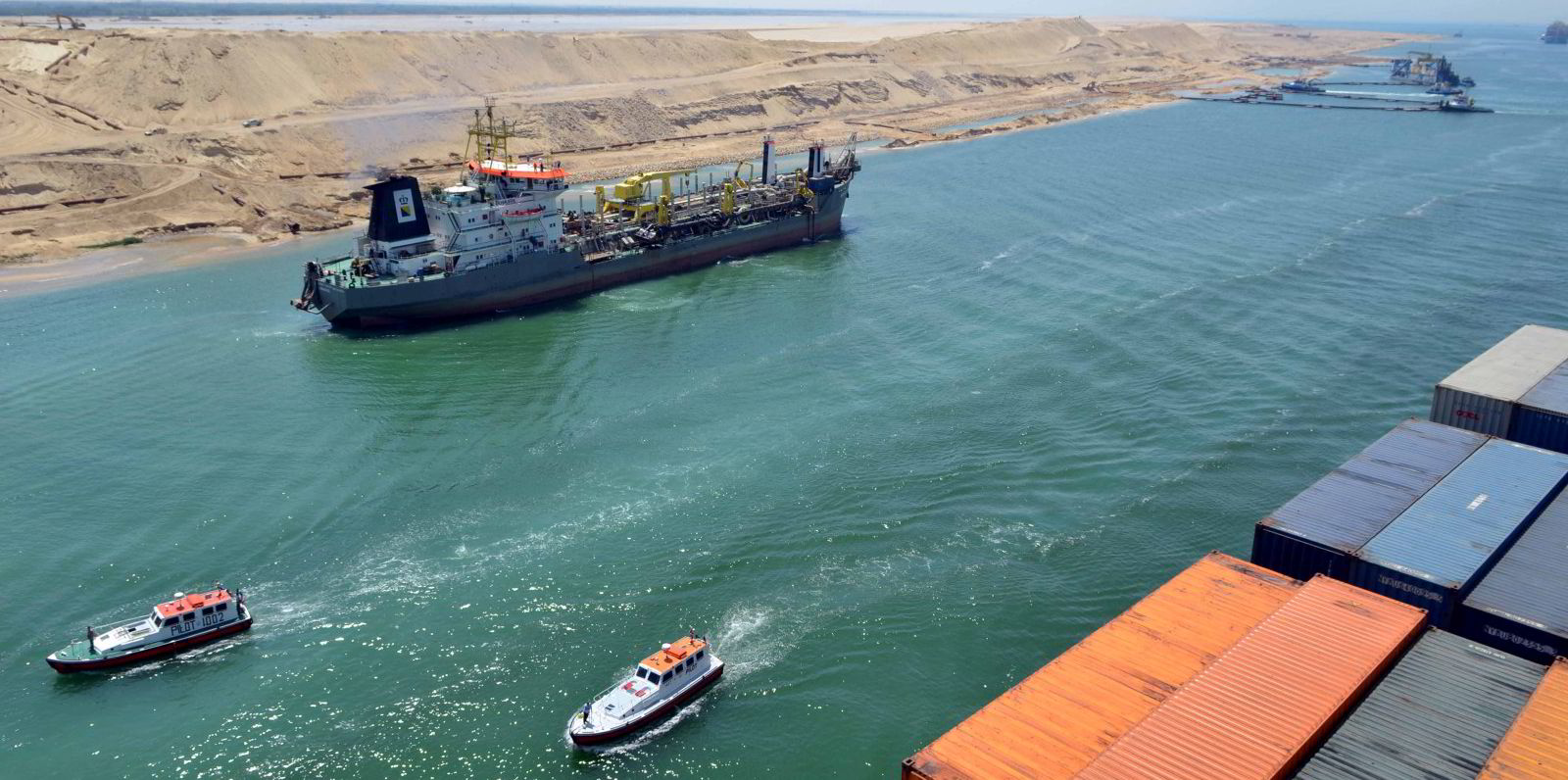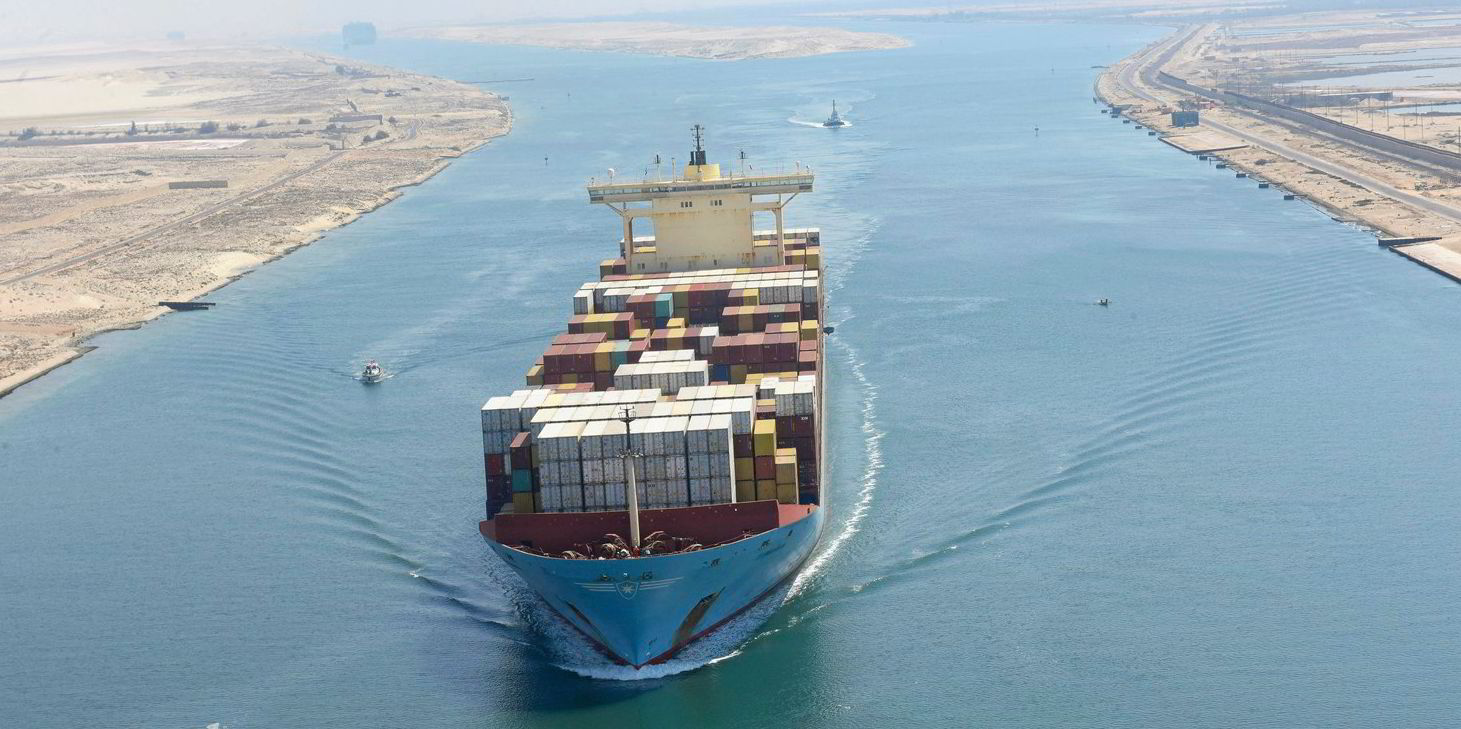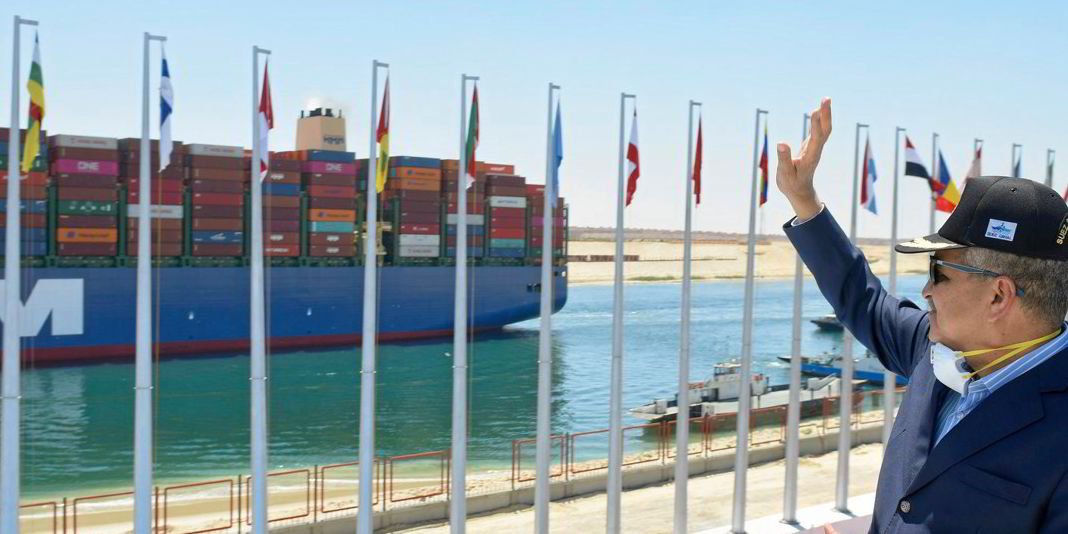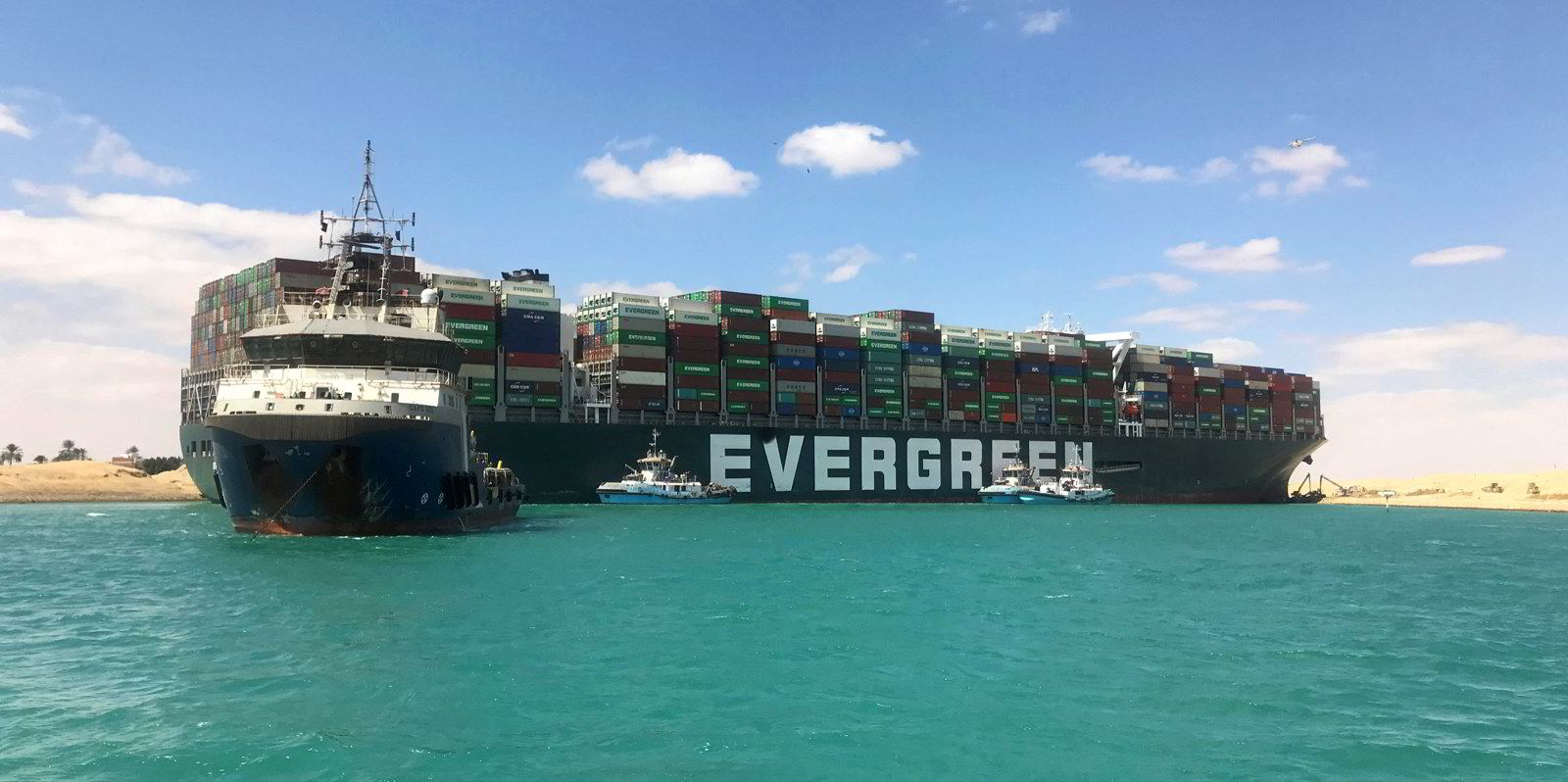In a move that is bound to restoke speculation about the future of the Suez Canal as an entity fully owned by the Egyptian state, Saudi Arabian shipping giant Bahri has announced plans to set up a joint venture with the waterway’s authority.
On Wednesday, Bahri and the Suez Canal Authority (SCA) signed a non-binding memorandum of understanding to cooperate in establishing “a joint Egyptian joint stock company for maritime transport”.
The new company would “specialise in owning, leasing, renting and operating ships for the purpose of transporting general and bulk cargo, chemicals, oil and all operations related to maritime transport”, Bahri said in a post on its LinkedIn page.
This strongly resembles language in a controversial legislative amendment tabled in Egypt in December, which allows the SCA to “buy, sell, lease, exploit and benefit from fixed and movable assets” from a Suez Canal fund endowed with EGP 10bn ($326m).
This led to speculation that the government might privatise the waterway.
Policymakers, however, rushed to clarify that this was in no way implying a sale of the canal itself.
Full ownership of the Suez Canal is seen as a cornerstone of the country’s independence.
Its nationalisation from British-French interests in 1956 turned Egypt’s President Gamal Abdel Nasser into a national hero.
However, with finances weak and the country relying to a large extent on the International Monetary Fund to stay afloat, it is not surprising to see the government in Cairo looking for ways to monetise its ownership of the Suez Canal — one of its biggest and arguably most reliable foreign currency earner.
Cooperation with Bahri may present a politically palatable option to seek outside help in squeezing value out of the waterway.
Also known as the National Shipping Co of Saudi Arabia, Bahri is a joint venture between the country’s sovereign wealth fund and oil major Saudi Aramco.
The preliminary agreement with the SCA will have a duration of six months, with an option for renewal.
“The financial impact” of the agreement cannot be determined yet, Bahri said.
Shipping keeps talking
In the meantime, Egypt is seeking to bolster its finances by raising passage fees for the thousands of ships crossing the waterway.
The SCA increased transit fees three times over the past 15 months. On top of that, from 1 April the additional surcharges applying to crude oil and product carriers increases.

Higher tolls were among several issues discussed this week between a delegation of the International Chamber of Shipping and the SCA.
The two sides pledged to keep their lines of communication open and to consult each other on tolls and other matters.
To that end, the ICS said it extended by another year a “landmark agreement” that it had signed with the SCA in May 2022.
ICS secretary general Guy Platten hailed the renewal he agreed with the SCA chairman, Admiral Osama Rabie.
“It is a real positive development that we have a long-term commitment to working together to maintain open dialogue on matters impacting both shipowners and the authority,” Platten said.
It is hoped that an open channel of communication will give shipping companies a chance to provide feedback and help shape impending SCA decisions, including the absolute level of transit dues and future plans to introduce “green” tolls.
Such tariffs should “really incentivise first movers rather than adding extra costs”, one source said. “Shipping companies shouldn’t be put in a position in which it would be more profitable to go the other way.”
Lucy Hine contributed to this article






